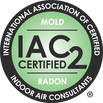Mike's Home Inspector BlogMichael Burfitt |
|
If you read part one of this blog post, you would know that there are a lot of very scary scams going on now. These scammers are ruthless, highly organized, and will drain your bank account dry without a hint of remorse. In the past scammers were laughably bad with poor grammar, awful spelling, and ridiculous subject lines in their emails (the Prince of Nigeria doesn’t need your help to move $4.6 million to your bank account for a $500 fee!) however times have changed. Today they can be virtually indistinguishable from legitimate businesses, which harms all of us who rely on doing business online to people we have usually never met in person. All is not hopeless however and here are some tools you can use to defend against cyberscams. Scammer Tells While it can be difficult to tell scammers apart from honest people, in my experience every scammer has some tells. By themselves they don't always mean a scam however if you encounter these, especially more than one proceed with extreme caution. Unsolicited Requests for Personal Information Be wary of individuals or websites asking for sensitive, personal information such as passwords, SIN (or SSN) numbers, or bank account details without a valid reason. Even though I have completed PCI training (required to handle bank transactions) our business does NOT collect ANY financial information as all transactions are conducted through a trusted and established financial partner. I do not know anything besides the type of card used (i.e. Visa, Mastercard, Debit) nor do I want this information. We also have not, do not and will not accept or request payment in untraceable means such as Cryptocurrency or Gift Cards! Too Good to Be True Offers Scammers often lure victims with offers that seem too good to pass up, such as guaranteed large sums of money for little to no effort. In our case, we have great rates but will NEVER offer free or almost free inspections. Browsing this website will easily demonstrate to you how passionate I am about home inspections, but we do have bills to pay! Poor Grammar and Spelling While scammers are getting very good at their English, there are always some things you can look out for: scammers frequently use the word “kindly” as it is used far more commonly in their countries (almost all cyber scammers targeting North Americans are in either India, Nigeria, or Ghana). They also tend to list phone numbers as “+1 (555) 555-5555” when most North Americans do not use the country code and if they do, I have never seen anyone raised in this continent use the “+1”. Fake Profiles or Websites
Check for inconsistencies in profiles or websites, such as missing contact information, suspicious URLs, or copied content from legitimate sources. With the explosion in real estate prices, especially in Halifax, there were several fake websites created. Luckily, they seem to now be offline but new fake websites and advertisements are popping up every day. Requests for Money or Financial Assistance Always be cautious if someone you've met online asks you for money, especially if it's for reasons like emergency medical bills, travel expenses, bail to be released from custody, or investment opportunities and even more so if the request is in the form of Gift Cards or Bitcoin. We, like most legitimate home inspectors NEVER charge more than quoted and will never ask for any money outside of a formal and traceable invoice. Pressure Tactics Scammers may use pressure tactics to rush you into deciding before you have time to think it through. They might claim the offer is limited or time sensitive. While we are offering a 15% off winter sale, this is about the extent of our “limited time” offers. We will still honour it for a few days past the expiry and since I personally detest them, we will never use high pressure tactics. (Don’t) Fight Back Against Cyberscammers! While there are plenty of videos online of people who take on scammers (known as scam baiters), and it feels good to see justice served it is important to note that like any television show there's a lot more to it than just humiliating scammers. Much like how home renovation TV programs never show the extensive mess, many permits required, frustration of dealing with contractors who ghost, and too-many-to-count unexpected delays involved in any major project, taking on scammers is a risky and often dangerous game to play. These scammers are not just a few young adults overseas in a call centre: they are part of large organizations who get better at scamming every day. Much like yelling at a fast-food cashier is not going to bring any type of positive change, trying to guilt someone who sees you as a number is a waste of time and energy. As well, these organizations, like anyone else do not like being attacked and baiters run the risk of harmful retaliation. If you run across someone who is a scammer don’t engage them, don't reply, don't try to reason with them and most importantly resist the urge to fight back! Ignore, block, and delete any messages from known or suspected scammers and if it is phone call, resist the Canadian urge to be polite and hang up immediately without comment. If they call back? Just hang up again. Just as your favourite home inspector does after every inspection, scammers use feedback to improve their skills. Baiting a scammer or pointing out their weaknesses is a great way to unknowingly provide them with knowledge of how to refine their grifting skills. I am intentionally withholding a major "tell" so no overseas scammer realizes it and corrects it. A Final Note While I have mentioned that most of these scammers are in the nations of Nigeria and India these two countries have a combined population of over 1.6 BILLION (1600 million) compared to about 38 million in Canada. Contrary to popular belief, these countries are NOT havens for criminals and the reason these 2 countries are where most cyber scammers targeting North Americans reside is because English is widely spoken, and authorities are inconsistent at best. These scams are also very much illegal in those countries, which is where the term “419 scam” comes from (it's the section number in the Nigerian Criminal Code that covers scams). Remember our communities are full of people who proudly come from all over the world and are honest hard-working people who help shape Canada into such a great, diverse country. When I worked in retail it was emphasized over and over that there is no such thing as a “typical” shoplifter and the same applies for criminals in general. They look like anyone, can be anywhere and appear at any time and blending in is why so many are successful. Please use caution online so you don’t become the next victim of these scammers. The home inspection industry is unique in that a) almost all our clients don’t physically meet us until the day of an inspection and b) a successful job usually means that I will never hear from clients again, so often many new clients are rightfully leery of trusting possibly the biggest life decision to someone they have never met in person. This isn’t helped by the fact our industry is completely unregulated and as a new homeowner, it is difficult to tell a skilled inspector from a pretender. One of the ways I overcome this limitation is from this very blog, where I can share my extensive knowledge and experience with inspecting building systems. Doing most of my business online means I come across many scam attempts. Luckily, I can quickly identify and avoid them, but the sad fact is these cybercriminals are organized, highly skilled and have no problem with draining every penny from your bank account. There is a misconception that most scams are like the Nigerian Prince or Lottery scam, where an unsolicited email promises a ludicrously large amount of money in exchange for a small fee. Of course, the promised money never appears, and most people can easily see the absurdity of paying money to get money. Unfortunately, scammers are usually far more subtle than this. Here are a few examples of common scams. Company Imposter Scams This can take many forms: email, text or even a phone call. The scammer pretends to be associated with a legitimate and well-known organization, such as Amazon, Apple or the local Police. Here is an example of a scam message we received. Looks very legitimate until you take a closer look. There are a number of ways to tell that this email is a scam: 1) There is no personal or company information listed. In this example, the email doesn't say "dear Inside Edge..." 2) Have you ever known a large, multinational company to highlight how to quickly get a refund and have a "cancellation department"? 3)Legitimate companies in North America do not put "+1" as a phone prefix and this is a sure sign this scammer is based outside of Canada and the United States. That phone number is not listed anywhere online: strange for such a large organization, isn't it? 4) Speaking of the US, this email is in United States dollars while we are a Canada based business and clearly use a Canadian website. 5)If you check the actual site for this company, they will show you how to check that it's a genuine email from them. Spoiler: this one doesn't meet their criteria. I can confidently say that if that phone number still works, I would be instructed either provide a credit card or to give remote access to our bank account to "refund" the money. The scammers would then proceed to attempt to drain the account or rack up a credit card bill. Scams usually use a fear-based approach to get you to act immediately before thinking rationally: usually by threatening deletion of accounts, arrest or hacking and sharing your personal details. They will usually insist on you paying them with Gift Cards or Cryptocurrency: the reason for this is twofold: 1)They are not traceable and can easily be sold on the black market. 2)Gift Cards and Cryptocurrency (such as Bitcoin) are easy to transfer internationally without providing any ID or being questioned by a bank or other financial institution. Here is another scam message. Let's pretend for a moment I do have an account with this particular bank. I pull out my wallet and *gasp* that is my card number! The important thing to note is that (almost) ALL cards from that bank start with those four numbers! I can also tell you that if you bank with CIBC your card starts with 4506, TD it starts with 4724 and Scotiabank its 4536 not because I am psychic or because I have a post-secondary degree concentrated in banking theory (this is actually true!) but because this is easily obtained information. If there is any doubt, be sure to reach out to your bank using their published contact information (never click on that link in the text).
Recovery Scams If you are the unfortunate victim of a scam, it is a near guarantee that you will get a flood of "helpful" people who are looking to get "justice" for you and get at least some of your money back. Unfortunately, these are also scammers. They usually use bot accounts triggered to respond to keywords: I did a recent social media post and almost instantly got 25 responses of people looking to "help". Of course, they all had sketchy links. The only thing you will get from these "helpful" messages is a further drop in your bank account balance. Romance Scams I remember back in my single days doing online dating and the many frustrations that went with it. In addition to the usual problems, I was always on alert for romance scammers. I did run into one who claimed to be a travel nurse currently in Africa with the UN and returning home soon. The pictures were not of a supermodel nor was the message I was sent an obvious scam: it was well written and did not ask for money. I thought there was a chance this could be a real person, but I made sure to proceed with caution. I carefully checked the profile, and I did notice some words and phrases that people raised in North America rarely use. My suspicions proved correct when the scammer made an excuse that they would prefer to switch to an encrypted message service. Once I refused that was the end of it. If I had to continue, the scammer likely would have provided a sob story about how they needed a small amount of money (perhaps $50). This would have escalated to hundreds and perhaps thousands at a time until I had no money left to give. Sadly, these scammers are not only frequently successful, in some cases they have convinced victims to not trust family and friends. They are getting more skilled at creating fake identities to the point that...... Deepfake Scams This is probably the scariest scam that is developing. It is now possible to create a fake video that is almost indistinguishable from a real video. They usually use famous celebrities but it's only a matter of time before fake videos of ordinary people like yours truly are created. Be aware of things that seem out of character: if you ever see a video of me claiming I only take gift cards as payment that's a clear sign it's not me! Tune in next week where we look at some tools you can use to fight back against scammers. In Nova Scotia, our unique climate demands careful consideration when it comes to keeping your home cozy and energy-efficient. Insulation plays a crucial role in maintaining indoor comfort, and understanding the various types available can help you make informed decisions for your property. Here’s a quick look at a few types of insulation I have seen during home inspections. Fibreglass Insulation This is the most common type of insulation I encounter. The two most common types of this type of insulation are loose fill and batts. Advantages Cost-effective: Fibreglass insulation is generally more budget-friendly than some other options. Easy installation: It is available in batts or rolls, making it easy to install between wall studs and in attics. Effective thermal performance: Fibreglass insulation resists heat transfer, keeping homes warm in winter and cool in summer. Disadvantages Prone to settling: Over time, fiberglass insulation may settle, reducing its effectiveness. This can be further accelerated by being walked on. Can be irritating: Handling fiberglass can cause skin irritation, requiring proper protective measures during installation. Spray Foam Insulation There are two basic types of foam insulation: open cell and closed cell. Advantages Excellent air sealing: Spray foam forms a tight seal, reducing air leakage and enhancing energy efficiency. Versatile applications: It can be used in attics, crawl spaces, and walls for comprehensive insulation. Long lifespan: Spray foam is resistant to settling, providing long-lasting insulation. Disadvantages Higher cost: Generally, it is more expensive than traditional insulation materials. Professional installation required: Proper application of spray foam demands expertise, necessitating the involvement of skilled professionals. Rockwool (Mineral Wool) Insulation
This type of material is commonly used in commercial properties. Advantages Fire-resistant: Rockwool provides an added layer of fire protection due to its composition. Acoustic insulation: It offers soundproofing properties, enhancing overall comfort.This is one reason why many commerical properties use Rockwool between tenant spaces. Good thermal performance: It is effective in maintaining indoor temperatures in variable climates. Disadvantages Higher cost: Rock wool insulation can be more expensive compared to other options. Heavier than some alternatives: Its weight may be a consideration, especially in certain construction scenarios. Choosing the right insulation for a Nova Scotian home involves weighing the advantages and disadvantages of each material. Consultation with a local insulation professional is key to making an informed decision based on your specific needs, ensuring your home remains comfortable and energy-efficient throughout the seasons. Before I became the home inspector you know and love (and a parent!), I had a lot more time on my hands. One of the ways of filling that time was to work as a volunteer Medical First Responder with St. John Ambulance, to which I got to attend many public events such as the Pride Festival, sporting events such as the Halifax Mooseheads (fan since 1995!), and concerts such as Bob Segar and George Thorogood. Most of the people I volunteered with had a medical background, with many looking to become Doctors. It was there I learned many of the skills that have served me well in the field of home inspection. When it comes to maintaining the health of our homes and our bodies, the importance of regular check-ups cannot be overstated. In the realm of homeownership, the role of a home inspector can be likened to that of a family doctor or general practitioner (GP) in the world of healthcare. Both professionals play a crucial role in identifying potential issues, providing preventative measures, and ensuring overall well-being. In this blog post, we will explore the parallels between a home inspector and a GP, shedding light on the similarities that may not be immediately apparent. Thorough Examination Just as a general practitioner conducts a comprehensive physical examination, a quality home inspector meticulously assesses the various components of a house. From the foundation to the roof, and everything in between, home inspectors leave no stone unturned. Similarly, GPs evaluate all aspects of a patient's health, conducting thorough examinations to identify potential issues and create a baseline for future comparisons. Diagnostic Skills Good home inspectors and GPs both possess keen diagnostic skills. A home inspector can identify potential structural issues, electrical problems, or plumbing concerns. On the other hand, a GP uses diagnostic tools and medical expertise to identify health conditions and recommend appropriate treatments. Both professionals must interpret symptoms, identify root causes, and provide recommendations for remediation or further examination. Preventative Measures Both home inspectors and GPs emphasize the importance of preventative measures. A home inspector may suggest routine maintenance or repairs to prevent larger issues from arising. Similarly, GPs focus on preventive healthcare, advocating for healthy lifestyles, vaccinations, and regular screenings to catch potential health problems early. Communication Skills
Effective communication is vital for both professions. Home inspectors need to convey their findings clearly to homeowners, outlining potential issues and suggesting solutions. GPs must communicate health conditions, treatment plans, and lifestyle changes in a way that patients can understand. Clear communication builds trust and ensures that clients or patients can make informed decisions regarding their homes or health. Holistic (or Systematic) Approach Both home inspectors and general practitioners take a holistic approach to their work. Home inspectors consider the entire home system, understanding that issues in one area may have repercussions elsewhere. Similarly, GPs consider the interconnectedness of the human body, recognizing that symptoms in one area may be indicative of underlying issues in another. In the grand tapestry of homeownership and healthcare, home inspectors and GPs weave a common thread of diligence, diagnostic expertise, preventative focus, effective communication, and a holistic approach. As we strive to maintain the health of our homes and our bodies, recognizing the similarities between these two professions highlights the importance of regular check-ups, thorough examinations, and a proactive mindset to ensure lasting well-being. Just as we trust our GPs to safeguard our health, we can rely on home inspectors (such as yours truly!) to be the guardians of our homes, ensuring they stand strong for years to come. 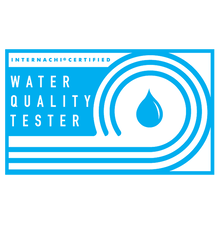 As someone who was born and raised in the suburbs and now lives in a typical suburban home in Halifax with my family, I imagined most of my clients would be in the Halifax and Dartmouth areas when I launched my business, so I had no plans to do water testing. These areas are serviced by Halifax Water via the Pockwock and Lake Major water treatment plants respectively. In short, our water is clean, safe and if for some reason conditions change, we will be instantly alerted. It eventually became apparent that I was serving many clients in rural areas: I would estimate that over half the inspections I have done so far in 2023 are in what would commonly be considered rural areas. Upon adding water testing services earlier this year, it quickly became my most requested add-on service. Why Water Testing Matters I remember at the age of 9 moving to Dartmouth close to the water treatment plant on Lake Major and instantly noticing how the water tasted like swimming pool water! There was no question that chlorine was added to the water supply and as unpleasant as it was at least it wasn’t going to make one sick in that quantity. Unfortunately, many contaminants aren’t easily identifiable by the senses like that. We all know that water is commonly known by its chemical composition (H2O) as a molecule of water is made up of 2 Hydrogen atoms and 1 Oxygen atom. In theory that’s correct but water is almost never seen in its purest form. Here are a few chemicals frequently tested for in a water test and why. Arsenic (As) Arsenic is a naturally occurring element and prolonged exposure to As can lead to skin problems, cardiovascular disease and some cancers. Lead (Pb) While found in bedrock, Pb is rarely found in groundwater. The main concern is with Pb supply lines, which are concentrated mainly in Peninsular Halifax and the older section of Dartmouth. Lead can cause significant neurological issues, especially in children as well as many health problems in adults. Nitrates (NO3) and Nitrites (NO2) Both compounds are similar, with the difference being the number of oxygen atoms. Both commonly come from fertilizers and animal waste and can lead to health issues, most noticeably methemoglobinemia (commonly referred to as blue baby syndrome), caused by low oxygen in the blood. Fluoride (F–)
Commonly known as that stuff in toothpaste, fluoride is related to, but not the same as the highly reactive element fluorine (F). F– is an ion (meaning it is electrically charged: in this case negative). While beneficial in very small amounts, excessive F– can lead to dental and bone problems known as fluorosis and large F- levels can lead to brain damage and even death. Luckily this is not really an issue with Nova Scotia groundwater but this fancy graph above highlights some of the many effects of F- Contact us at Inside Edge for more information on the variety of water testing options we can provide for you. We’ll properly take samples and provide a report while interpreting the laboratory results in an easy-to-understand format. Nine Ladies Dancing Around Carbon Monoxide Detectors Carbon Monoxide (CO) is a silent killer as it binds to hemoglobin in the blood, cutting off the ability of the blood to carry oxygen. This byproduct of incomplete combustion is undetectable by our senses—it's odorless, tasteless, and invisible. Every home that utilizes a combustion system faces the risk of CO leaking into living areas. However, merely installing a CO detector isn't enough. These detectors lose their accuracy over time and typically function effectively for only 5 to 7 years. Sadly, many CO (and smoke) detectors I encounter are near the end of their lifespan. Therefore, it's imperative to check and replace them before it's too late. Ten Lords-a-Leaping to Window and Door Checks When it comes to home energy efficiency, windows play a crucial role. Upgrading them can indeed save energy and money, but the substantial cost of new windows might not always be cost-effective in the long run. During inspections, we pay attention to signs like difficult-to-open windows and uneven doors. While these issues can signal structural concerns, more often, they result from normal settling and can be rectified by re-shimming. Foggy windows are another common issue, signaling failed seals that require prompt attention. Remember that window issues aren't restricted to older installations: this one was approximately 5 years old! Eleven Pipers Piping Pest Prevention
Pest problems are common in many homes, with mice and rats being frequent issues in our city and province. Preventing their entry is key. By sealing holes, managing nearby vegetation, and removing potential food sources, homeowners can significantly reduce the likelihood of infestations. Twelve Drummers Drumming Up Home Safety
And, of course, never underestimate the value of a professional home inspector! On behalf of the entire Inside Edge family, we wish you the very best this holiday season. Have a safe and Merry Christmas, Happy New Year and we look forward to seeing you in 2024! Five Golden Rings of Electrical Safety Electrical is probably the most important part of an inspection: while there is no doubt there is an issue when there is a waterfall in the kitchen or a large horizontal crack in the foundation, electrical issues can be difficult to detect by the untrained eye. Here are five that I always look for: Single strand aluminum branch circuits: Not all aluminum wiring is problematic; it's commonly used for electrical conduction due to its cost-effectiveness and lightweight nature. I also look for Knob & Tube (K&T) although it has largely been removed and replaced over the years. Inspection of Electrical Receptacles: Checking a representative sample for missing grounds, reverse polarity, and signs of arcing, such as burn marks. Reporting on the status of Ground Fault (GFCI) and Arc Fault (AFCI) Circuit interrupters: Building and Electrical Codes evolve; retroactive changes are rare. In spite of this, I always suggest updating electrical systems to the latest standards. Assessing DIY Modifications: Any signs of makeshift "improvements," like the use of extension cords for permanent power supply, are noted. System Overview: Assessing the entire system for adequate amperage, checking for undersized wires (oversizing is acceptable but wasteful), and ensuring no reasons exist for the power utility and insurance company to refuse service to the home. Six Geese-a-Laying Insulation Tips In older homes, insulation sometimes becomes an issue due to DIY attempts. While modern homes adhere to updated building codes, some retrofits fall short. For instance, in one inspection of an older brick house, the added insulation was carelessly installed, defeating its purpose. Remember, proper insulation traps air in pockets; compressing it renders it ineffective. Wet fiberglass insulation? Only fit for the trash. More insulation is beneficial, but not when compressed to squeeze more in. Seven Swans-a-Swimming in Plumbing
Plumbing installations by professionals are generally sound, but ongoing maintenance is crucial. Homeowners need to realize that sinks and drains aren't infinite voids. Disposing of inappropriate materials like baby wipes or bacon grease can lead to plumbing issues brewing for years, suddenly surfacing as household disasters. Eight Maids-a-Milking Moisture Concerns Moisture is the ultimate nemesis of homes, fostering rot, mould, and significant damage. The following proactive measures are key:
Stay tuned next week when we conclude this Christmas theme blog and look at four more inspection items. |
Archives
July 2024
Categories
All
|
|
Inside Edge Home Inspections Ltd.
Halifax, NS 902-209-9921 [email protected] Proudly Serving the HRM & Central Nova Scotia |
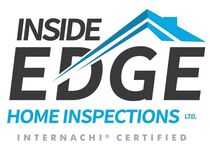

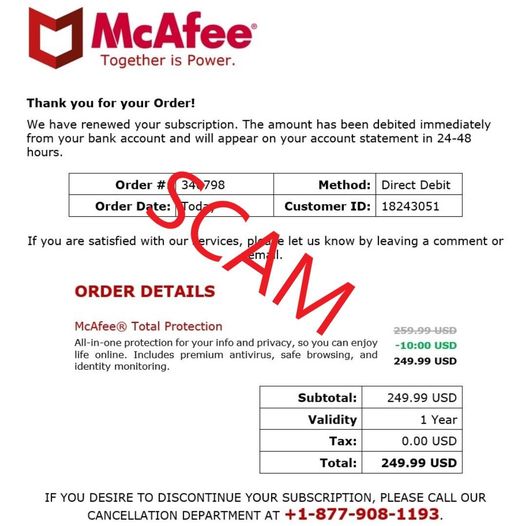
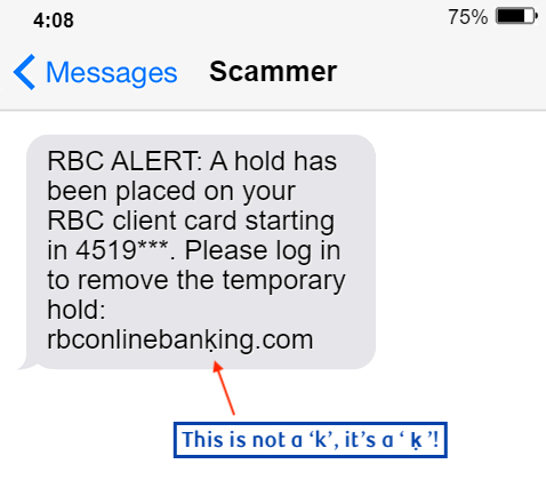


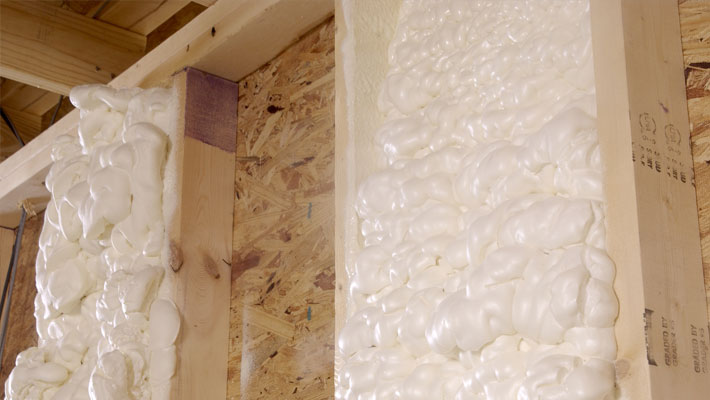
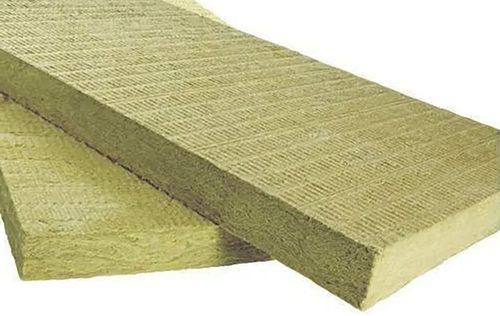


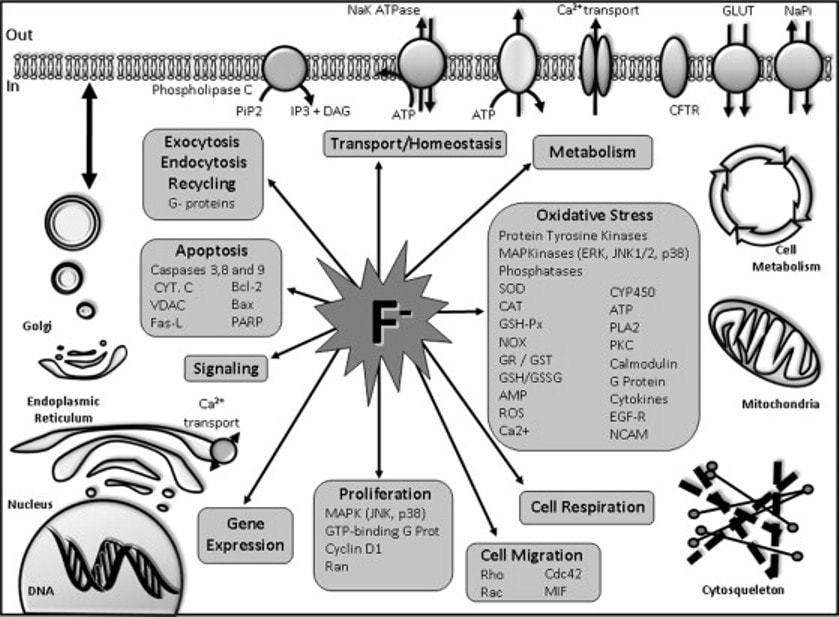
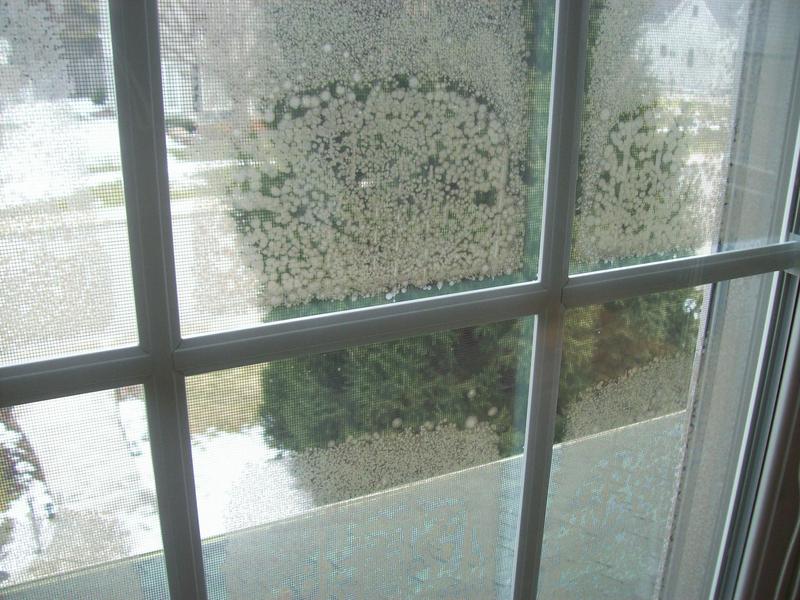
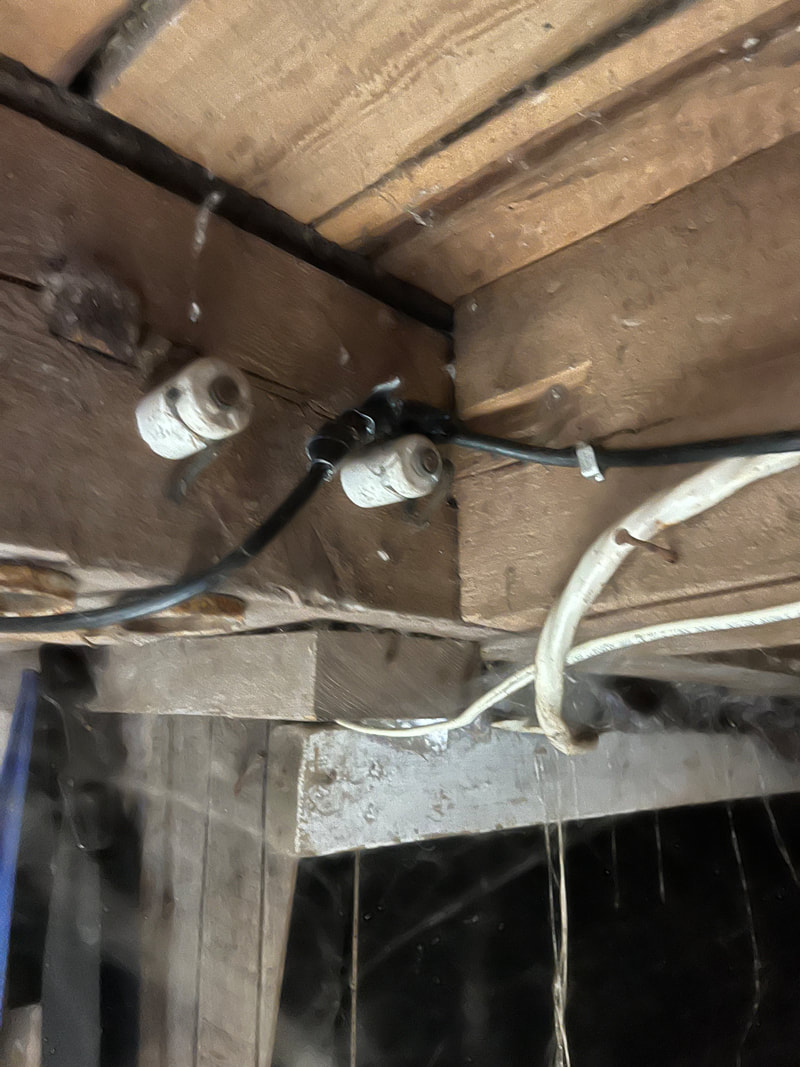
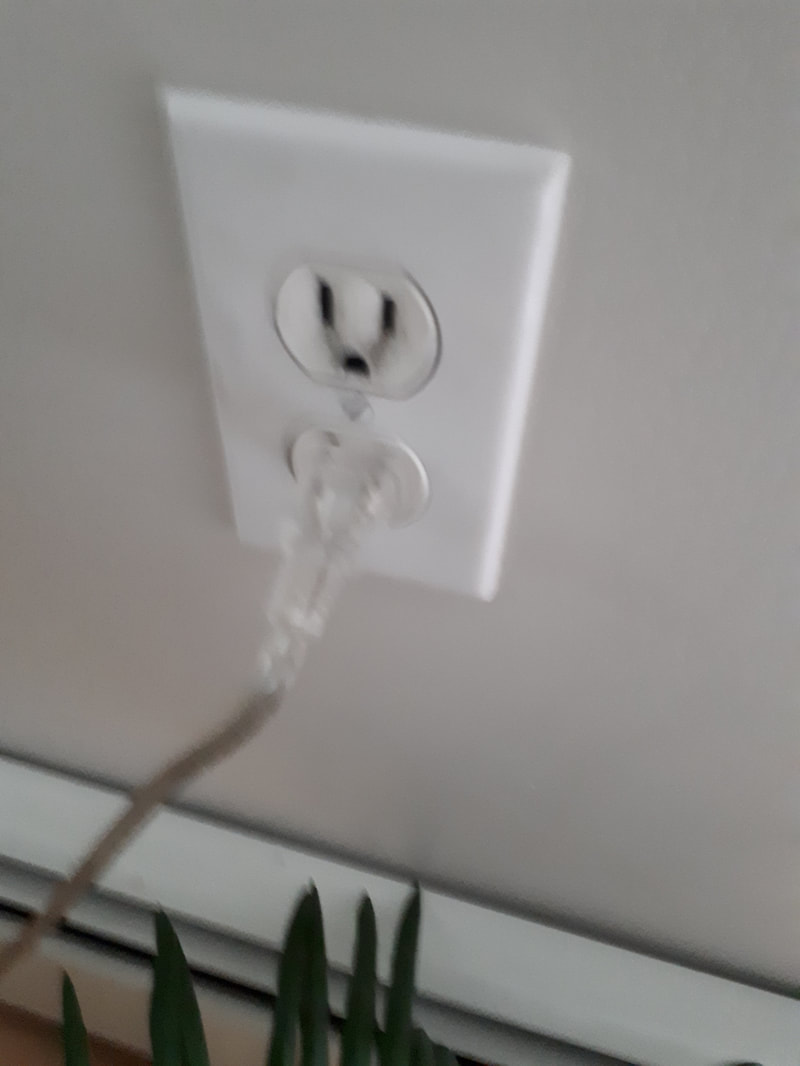
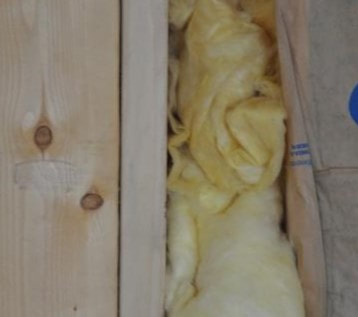
 RSS Feed
RSS Feed

